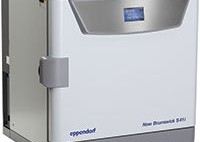This webcast features: Dr. Kiran Chodavarapu, Bioprocessing Business Development Manager at W.R. Grace. Implementation of single-use technologies and higher antibody titers upstream have put increasing pressure on downstream processes to improve efficiencies and keep pace with upstream advancements. There continues to be a lag in the development and adoption of single-use technologies in downstream – particularly in the area of chromatography. To help achieve the vision of a fully disposable and flexible manufacturing platform that addresses the current bottleneck in…
Ask the Experts
Optimization of HEK 293 and CHO Cell Culture Media Supplementation by DoE Methodology
This webcast features: Dr. Francesc Gòdia, Professor of Chemical Engineering at Universitat Autònoma de Barcelona Chemically defined and animal derived free components media are required for bioprocess development and operation using mammalian cell as platform for the production of biopharmaceuticals. The supplementation of commercial chemically-defined media with specific compounds is studied for the optimization of CHO and HEK 293 cell culture. Design of Experiments approach is used to first screen the most efficient compounds and further determine their optimal conditions.…
Your Shake Flask is not a Black Box Anymore! Online Measurements of Metabolic Activity Accelerate Your Bioprocess Development
This webcast features: Dr. Gernot Thomas John, director of marketing and innovation at PreSens Precision Sensing GmbH Shake Flasks are widely used for bioprocess development. The most widely measured parameter to determine the biomass is the optical density OD. Typically, this parameter is measured not continuously and offline. Now PreSens is launching the new SFR vario. This compact device is placed underneath the shake flasks and measures 4 parameters online: pH, Oxygen, Oxygen consumption (OUR) and biomass. Join GT as…
Increase Protein Yield through Optimization of Suspension CHO Transient Transfection
This webcast features: Laura Juckem, PhD, R&D Group Leader, Mirus Bio High efficiency transient transfections of suspension CHO cells enable researchers to bridge upstream and downstream processes and provide confidence that recombinant protein will have the same properties throughout the drug discovery pipeline. To address this need, Mirus Bio has developed the TransIT-PRO® Transfection Kit to maximize plasmid DNA delivery and therefore recombinant protein yield. There are several important parameters to consider during transient transfection including: (1) growth media compatibility,…
Parallel Cultivation of Microorganisms Using Rigid Wall Single-Use Bioreactors
This webcast features: Dr. Sebastian Kleebank, development and application lab manager, DASGIP GmbH (part of Eppendorf AG) Single-use bioreactor solutions have been successfully established in animal and human cell culture in the last years. Currently this technology is investigated for microbial applications, especially for high cell density fermentations. Dr. Sebastian Kleebank demonstrates that reproducible process control could be achieved using single-use bioreactors operated in parallel.
One Billion Mesenchymal Stem Cells in Eppendorf BioBLU 5c Single-Use Bioreactor at 3L Scale
This webcast features: Ma Sha This Ask the Expert webcast features Dr. Ma Sha, Director of Technical Applications for Eppendorf, Inc. In this webcast, presented to a live audience on May 6, 2014, he demonstrated the success of large clinical-scale culture of human adipose-derived mesenchymal stem cells (AdMSCs) in a BioBLU 5c single-use bioreactor at 3L scale. You can view the webcast here (Registration Required) Link to paper mentioned in presentation: A Novel Method for the Expansion of Mesenchymal Stem…
Reviewing Bioindustry’s Economic Year in 2013
This month, managing editor Maribel Rios discusses the financial state of the bioindustry with Howard Levine, founder, president, and principal consultant of BioProcess Technology Consultants. The industry is facing new opportunities for sales growth not only in the United States and Europe, but also in emerging markets such as those in Brazil, Russia, India, and China (the “BRIC” nations). Some of that growth comes from an increasing pipeline of biosimilars driven by the patent expiration of some major blockbuster biotherapies.…
Analytical Advances: The Power of Mass Spectrometry
This month, Lester Taylor, director of LC-MS product marketing, and Ning Tang, senior application scientist (both at Agilent Technologies) talk about the advances that have extended adoption of mass spectrometry (MS) in QA/QC laboratories. Ideal technologies for analyzing large proteins and peptides include high-resolution LC-MS time-of-flight (TOF) spectrometry and hybrid LC-MS quadrupole TOF (Q-TOF) methods. The experts also discuss software tools for MS analysis, which facilitate the processing of complex data sets. Traditional biopharmaceutical applications for MS include protein molecular-weight…
The Future of Protein A
In this audiocast, BPI’s managing editor Maribel Rios talked with Karol Lacki (staff scientist at GE Healthcare Biosciences) about the use and future of protein A in bioprocessing. Its selectivity, robustness, and well-known ability to bind to a wide range of IgG molecules have made protein A a widely accepted affinity resin for current purification streams. Nonetheless, the industry has raised some concerns over cost, productivity, and other issues. That has led to the development of novel alternatives for purification…
Culture Media: Sourcing Animal-Free Raw Materials
For September’s Ask the Expert, we talked to Bill Whitford (senior manager of the bioprocess market for Thermo Fisher Scientific) about sourcing animal-free raw materials for cell culture media. This has become a requirement for many biopharmaceutical sponsors, but it is not without its issues. But what precisely is meant by animal is not always clear. Regulatory guidance is sparse on this issue. And a designation of animal-derived–component free (ADCF) often involves additional certification, testing, or auditing. Sponsors and material…






